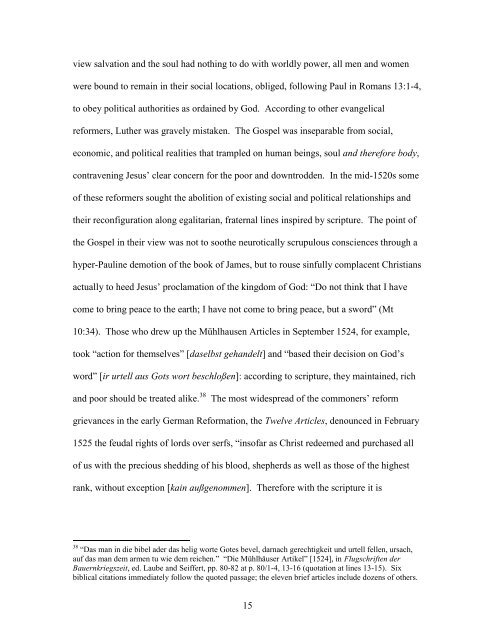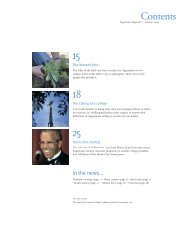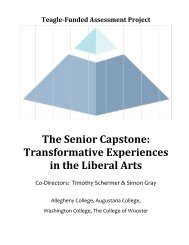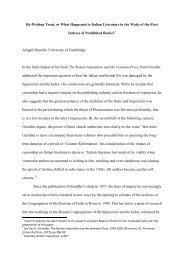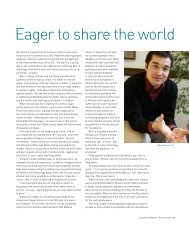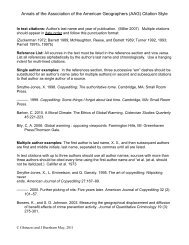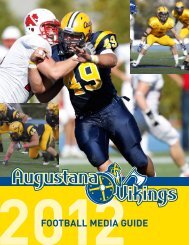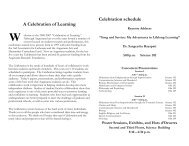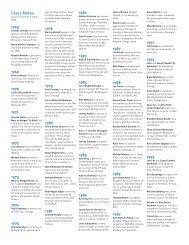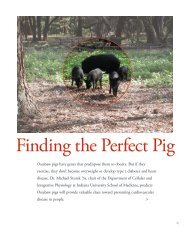Brad S. Gregory - Augustana College
Brad S. Gregory - Augustana College
Brad S. Gregory - Augustana College
Create successful ePaper yourself
Turn your PDF publications into a flip-book with our unique Google optimized e-Paper software.
view salvation and the soul had nothing to do with worldly power, all men and women<br />
were bound to remain in their social locations, obliged, following Paul in Romans 13:1-4,<br />
to obey political authorities as ordained by God. According to other evangelical<br />
reformers, Luther was gravely mistaken. The Gospel was inseparable from social,<br />
economic, and political realities that trampled on human beings, soul and therefore body,<br />
contravening Jesus‟ clear concern for the poor and downtrodden. In the mid-1520s some<br />
of these reformers sought the abolition of existing social and political relationships and<br />
their reconfiguration along egalitarian, fraternal lines inspired by scripture. The point of<br />
the Gospel in their view was not to soothe neurotically scrupulous consciences through a<br />
hyper-Pauline demotion of the book of James, but to rouse sinfully complacent Christians<br />
actually to heed Jesus‟ proclamation of the kingdom of God: “Do not think that I have<br />
come to bring peace to the earth; I have not come to bring peace, but a sword” (Mt<br />
10:34). Those who drew up the Mühlhausen Articles in September 1524, for example,<br />
took “action for themselves” [daselbst gehandelt] and “based their decision on God‟s<br />
word” [ir urtell aus Gots wort beschloßen]: according to scripture, they maintained, rich<br />
and poor should be treated alike. 38 The most widespread of the commoners‟ reform<br />
grievances in the early German Reformation, the Twelve Articles, denounced in February<br />
1525 the feudal rights of lords over serfs, “insofar as Christ redeemed and purchased all<br />
of us with the precious shedding of his blood, shepherds as well as those of the highest<br />
rank, without exception [kain außgenommen]. Therefore with the scripture it is<br />
38 “Das man in die bibel ader das helig worte Gotes bevel, darnach gerechtigkeit und urtell fellen, ursach,<br />
auf das man dem armen tu wie dem reichen.” “Die Mühlhäuser Artikel” [1524], in Flugschriften der<br />
Bauernkriegszeit, ed. Laube and Seiffert, pp. 80-82 at p. 80/1-4, 13-16 (quotation at lines 13-15). Six<br />
biblical citations immediately follow the quoted passage; the eleven brief articles include dozens of others.<br />
15


